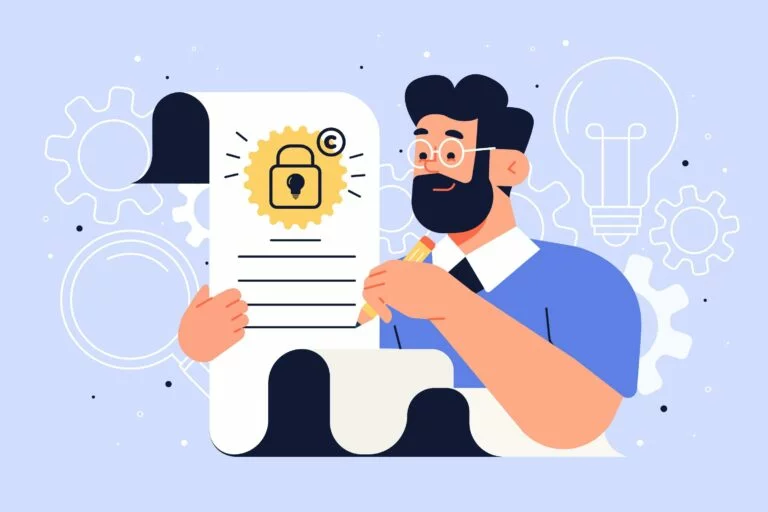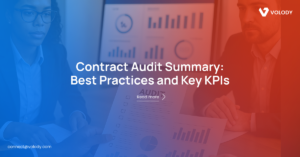Contract review is an essential component of the contract management process for businesses. It entails meticulously examining and evaluating the terms and provisions of a contract to ensure they align with the negotiation requirements and the specific business relationship. Employing a comprehensive contract review checklist can assist businesses in meticulously examining contracts, ensuring no crucial aspects are overlooked.
By using a simple guide and a contract review checklist, businesses can make sure their contracts are complete, correct, and legally valid. This blog will explain how to review contracts step by step. It will talk about important things in the contract review checklist, words you should know, and what you need for a good review. The blog will also show you how to do a review, mistakes to watch out for, and why using AI software for contracts is helpful.
What is Contract Review?

Contract review is the process of carefully examining legal agreements to ensure that their terms are thoroughly understood and meet the requirements of all involved parties. It involves a detailed analysis of various aspects of the contract, including clauses, obligations, risks, and compliance with relevant laws and regulations.
At its core, the contract review checklist aims to ensure clarity and fairness in the agreement while mitigating potential risks and liabilities. A thorough understanding of common contract terms and their implications is essential for conducting an effective review.
This includes scrutinizing provisions related to payment, delivery, termination, confidentiality, indemnification, and dispute resolution. By conducting a comprehensive contract review checklist, parties can identify any ambiguities or discrepancies, negotiate favorable terms, and ultimately establish a solid foundation for a mutually beneficial business relationship.
Key Concepts in Contract Review
Contract Terms: These are the specific rules and conditions written in a contract. They explain what each person involved has to do. Contract terms cover many things like what work needs to be done, how much it costs, when it should be finished when it can end, and keeping things private. It’s important to check if these rules are fair and make sense.
Dispute Resolution: This means figuring out how to solve problems that come up during the contract. It can be done by talking, getting help from a neutral person, going to a special meeting, or going to court. using contract review checklist, it’s important to see if the way to solve problems is fair and clear.
Payment Terms: These are the rules about when and how money should be paid according to the contract. It says how much money needs to be paid, how often, and how it should be sent. When looking at payment terms, it’s important to make sure they are easy to understand, fair, and follow normal practices.
Related Article: How To Manage Contracts Efficiently: Best Practices
Common Contract Terms

Familiarizing yourself with common contract terms is essential for conducting a thorough contract review checklist. By understanding these terms, you can ensure that all relevant aspects of the agreement are carefully analyzed and considered. Here are some common contract terms to be aware of:
Terms of the agreement: These are the specific provisions that outline the rights and obligations of the parties involved. They can cover a wide range of topics, such as scope of work, delivery timelines, payment terms, and termination clauses. It is important to review these terms to ensure that they are fair, reasonable, and in line with the parties’ expectations.
Indemnification: Indemnification clauses protect one party from legal liability arising from the actions or omissions of the other party. These rules usually say that if one side breaks the contract or causes problems for the other, they have to pay for any losses or damages. It’s important to check these rules to make sure they are fair and give enough protection to both sides.
Confidentiality: Confidentiality clauses protect sensitive information shared between the parties. These rules usually say that both sides have to keep some information private. They might say how long this secrecy should last, what things are exceptions, and what happens if someone breaks the rule. It’s important to check these rules to make sure they are good enough and follow the law.
Related Article: Contract Law: Understanding Legal Agreements
How to Prepare for a Contract Review Process?

Gather all necessary documents and information: Before starting the contract review process, gather all relevant documents and information related to the agreement. This may include the contract itself, any attachments or exhibits, previous versions of the contract, and any relevant background information.
Understand the business context: Familiarize yourself with the business context surrounding the contract. This includes understanding the goals, objectives, and requirements of the negotiation and the business relationship at hand. This will help guide your review and ensure that the contract meets the specific needs of the business.
Identify key stakeholders: Determine who the key stakeholders are in the contract review process. This may include legal counsel, contract managers, business owners, and other relevant individuals. Establish clear lines of communication and ensure that all stakeholders are involved and informed throughout the review process.
Establish a timeline: Set a timeline for the contract review process. Determine key milestones, deadlines, and deliverables. This will help keep the review on track and ensure that all necessary steps are completed on time.
Essential Documents Needed
The contract itself: Review the contract in its entirety, including all provisions, clauses, and schedules.
Attachments and exhibits: Gather any attachments or exhibits that are referenced in the contract. These may include technical specifications, drawings, or other supporting documents.
Previous versions of the contract: If available, review any previous versions of the contract to identify any changes or amendments that have been made.
Background information: Gather any relevant background information related to the contract, such as the parties involved, the purpose of the agreement, and any previous negotiations or discussions.
Sensitive information: Identify any sensitive information that is shared or disclosed in the contract, such as trade secrets or proprietary information.
Related Article: What Is Service Level Agreement? Your Ultimate Guide
The Beginner’s Guide to Contract Review Checklist
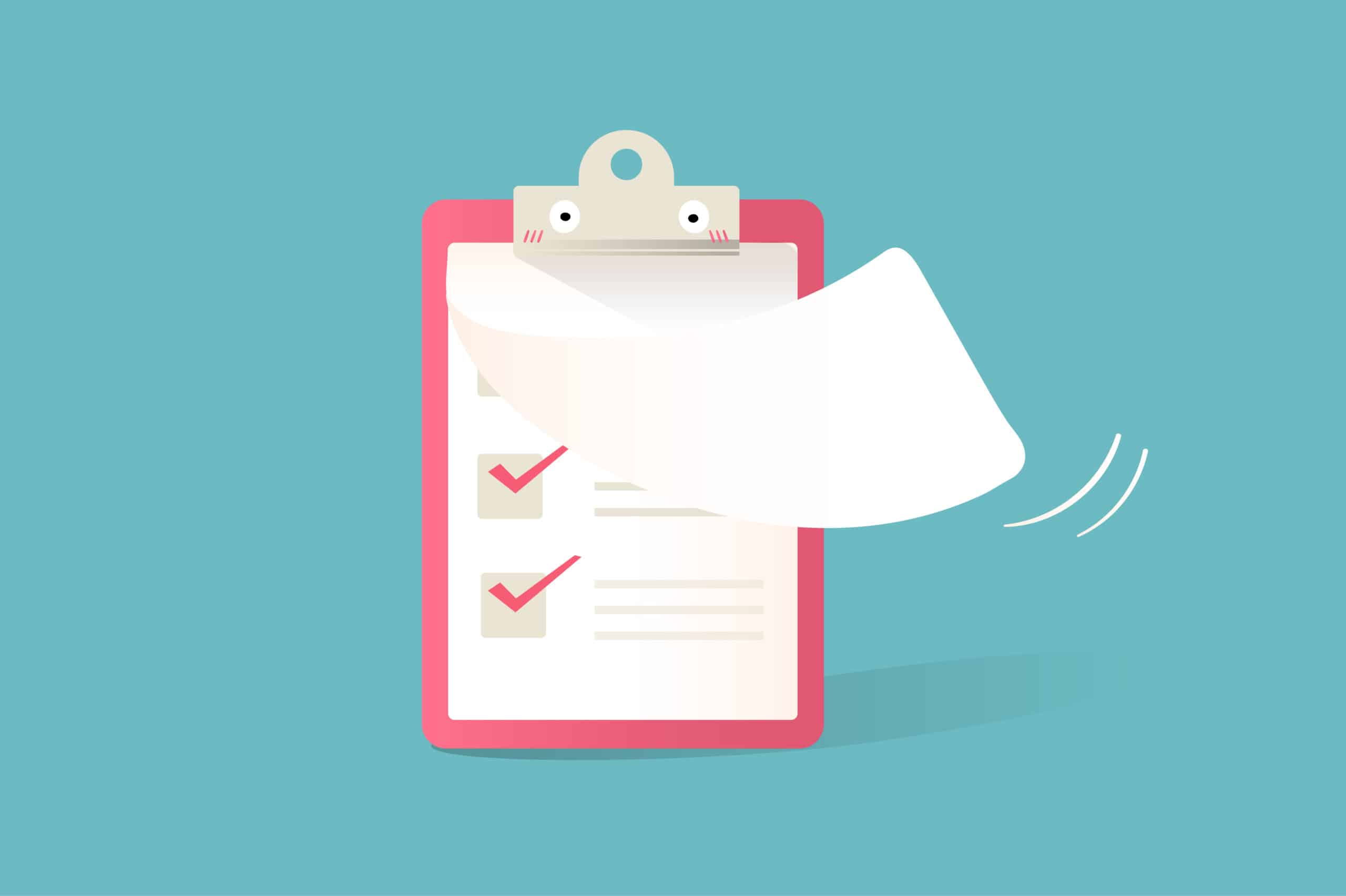
Conduct an initial review: Start by conducting an initial review of the contract to get a general understanding of its terms and provisions. This will help you identify any potential issues or areas that require further analysis.
Focus on straightforward contracts: If you are new to contract review, it may be beneficial to start with straightforward contracts that are less complex. This will allow you to familiarize yourself with the contract review process and build your confidence before tackling more complex agreements.
Understand the business relationship: Take the time to understand the business relationship at hand. This includes understanding the goals, objectives, and requirements of the negotiation. This will help guide your review and ensure that the contract meets the specific needs of the business.
Related Article: Importance Of Contracts: Why Do Contracts Matter?
Step-by-Step Guide to Contract Review

Step 1: Initial Assessment of the Contract

The first step in the contract review process is to conduct an initial assessment of the contract. This involves conducting a high-level review of the terms and provisions to get a general understanding of the agreement. The goal of this initial assessment is to identify any potential issues or areas that require further analysis.
During the initial assessment, focus on understanding the requirements of the negotiation and the business relationship at hand. This will help guide your review and ensure that the contract meets the specific needs of the business. Take note of any key clauses, obligations, or potential risks that stand out during the initial review.
Related Article: What Are Contract Obligations And How To Manage Them
Step 2: Identify Key Clauses and Obligations
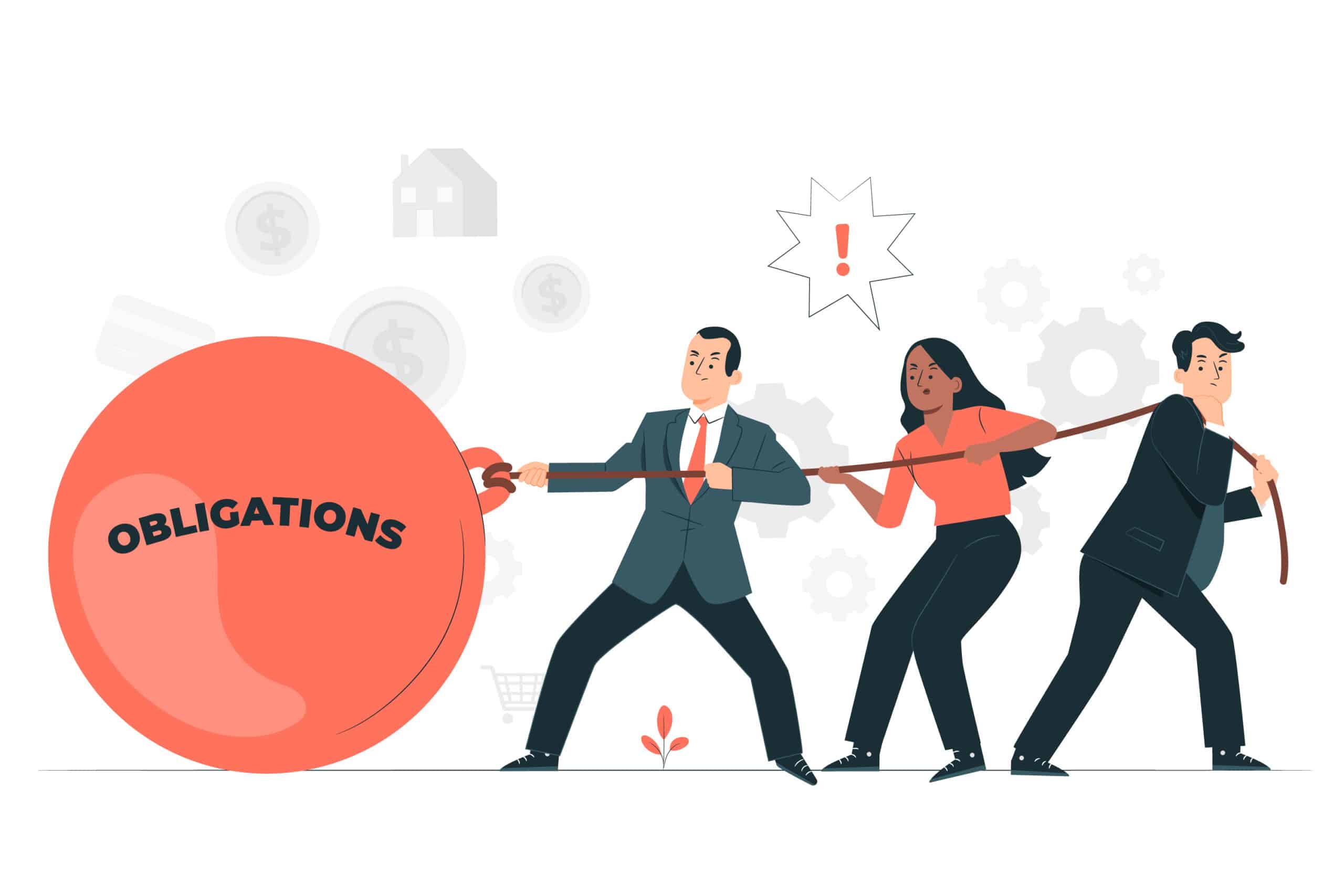
The second step in the contract review process is to identify and analyze the key clauses and obligations in the contract. These clauses and obligations define the rights and responsibilities of the parties involved and play a crucial role in ensuring that the contract is fair, reasonable, and legally binding.
During this step, carefully review each clause and obligation in the contract and assess their fairness and reasonableness. Pay close attention to key terms such as pricing, scope of work, delivery timelines, termination provisions, and any other provisions that are critical to the agreement. Identify any potential risks or areas of concern, such as ambiguous language or potential breach of contract issues.
Related Article: 7 Key Contract Clauses Found In Business Contracts
Step 3: Assessing Risks and Compliance Requirements

In the third step of the contract review process, it is important to assess the potential risks and compliance requirements associated with the contract. This involves identifying any potential legal liabilities, regulatory obligations, or other risks that may arise from the agreement.
During this step, carefully review the contract for any potential risks or areas of concern. Assess the potential impact of these risks on your business and determine whether they can be mitigated or addressed through negotiation or revisions to the contract. Pay particular attention to provisions such as indemnification, limitation of liability, and dispute resolution, as these can have significant implications for your business.
Also, check if the contract follows the law. Make sure it has rules that follow the law and that any needed permissions have been gotten. Doing this will help make sure your business is following the law and lower the chance of getting into legal trouble.
Step 4: Points for Negotiation and Warning Signs
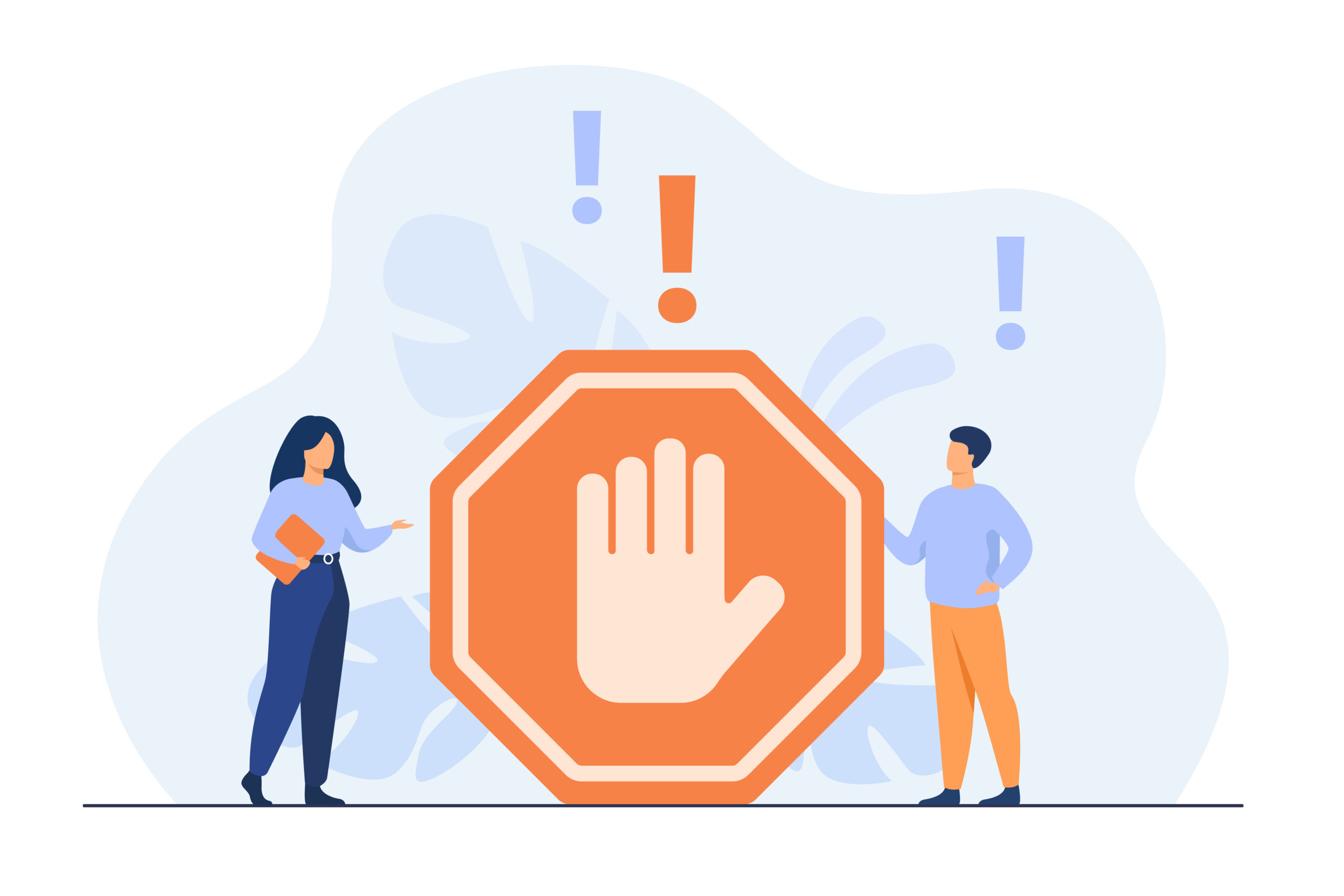
In the fourth step of reviewing a contract, it’s crucial to find any parts that need talking about or fixing. These could be things that don’t seem fair or don’t match what both sides want. It’s important to do this to make sure the contract works well for everyone involved.
During this step, carefully review the contract for any provisions or terms that may be potential negotiation points or raise red flags. These could include ambiguous language, unfavorable terms, or provisions that may not align with the parties’ expectations. Pay particular attention to provisions related to pricing, scope of work, delivery timelines, and dispute resolution.
Find any places where you might need to change the contract to fit what your business needs. Talk about these points with the other person and try to come to an agreement that works for both of you. By talking about these things and fixing any problems, you can make sure the contract is fair and makes sense for both sides.
Related Article: 7 Expert Tips For Easy Contract Negotiation
Step 5: Final Review and Sign-off Process

In the last part of checking the contract, do a careful final check to make sure everything has been looked at and fixed. This is the last chance to find any problems before saying the agreement is okay.
In this step, read the whole contract, including all the parts and extra papers, to make sure they’ve all been looked at and fixed carefully. Look closely at any changes made during the review and make sure they show what both sides want.
Once you are satisfied with the final review, sign off on the contract and ensure that all necessary parties have done the same. This marks the closure of the contract review process and the final execution of the agreement.
Related Article: Best E-Signature Software: Top 7 E-Sign Tools In 2024
Faster Contract Reviews with AI

AI contract review software has revolutionized the contract review process, making it faster and more efficient. artificial intelligence uses machine learning algorithms to analyze contracts and extract key information, saving businesses time and effort.
By leveraging AI contract management software, businesses can streamline the contract review process and improve efficiency and accuracy. AI software can review contracts at a much faster pace than humans and can identify potential risks and issues more effectively.
AI contract management software like Volody helps make contract reviews more consistent and accurate. It can check contracts to make sure they follow the law, spot any problems or confusing parts, and make sure all the needed rules are in there.
Related Article: AI For Legal Documents: Your Essential Guide
Advantages of Using Contract Management Software

Streamlined contract management process: Contract management software automates drafting and streamlines the entire contract management process, from drafting and negotiating contracts to storing and analyzing contract data. This saves businesses time and resources, allowing them to focus on more strategic tasks.
Improved efficiency and accuracy: AI-powered contract management software can review contracts at a much faster pace than humans, reducing the time and effort required for contract review. It can also identify potential risks and issues more effectively, improving the accuracy of contract analysis.
Enhanced consistency and standardization: Contract management software ensures that contracts are consistent and standardized, following predefined templates and guidelines. This improves the quality and consistency of contracts, reducing the risk of errors or oversights.
Related Article: How to choose the right CLM software
Frequently Asked Questions
What Are the Most Critical Elements in a Contract?
The most critical aspects outlined in a contract are the main rules, payment procedures, dispute resolution mechanisms, problem-solving protocols, and confidentiality provisions. These elements specify each party’s obligations, ensuring fairness, coherence, and legal compliance within the contract. Utilizing a contract review checklist can aid in systematically examining these key components to ensure the contract meets the necessary criteria.
How Often Should Contracts Be Reviewed?
It’s important to check business contracts often. How often you do this depends on the contract and what your business needs. Experts recommend reviewing contracts at least once a year. Additionally, it may be necessary to revisit them in the event of significant changes in your business operations or legal regulations.
Utilizing a contract review checklist can facilitate this periodic assessment, ensuring that contracts remain up-to-date and aligned with your business needs and legal requirements.
How can a contract review checklist help ensure that all important aspects are covered?
A contract review checklist helps you go through contracts step by step. It makes sure you look at all the important parts carefully. This way, you can understand the contract well, spot any possible problems, and make sure the important terms match what your business needs.
Conclusion
In the world of contract review, paying close attention to the details is crucial. Ensuring thorough examination of every aspect of the contract can prevent costly issues and ensure compliance with regulations. Understanding common contract terms and utilizing tools like contract software or AI can simplify the process and improve accuracy.
It’s important to remember that overlooking essential elements or neglecting minor details in contracts can lead to significant problems. By following the steps outlined in this guide and utilizing a contract review checklist, you can conduct thorough reviews with confidence. This ensures the protection of your interests and promotes smooth business relationships.
